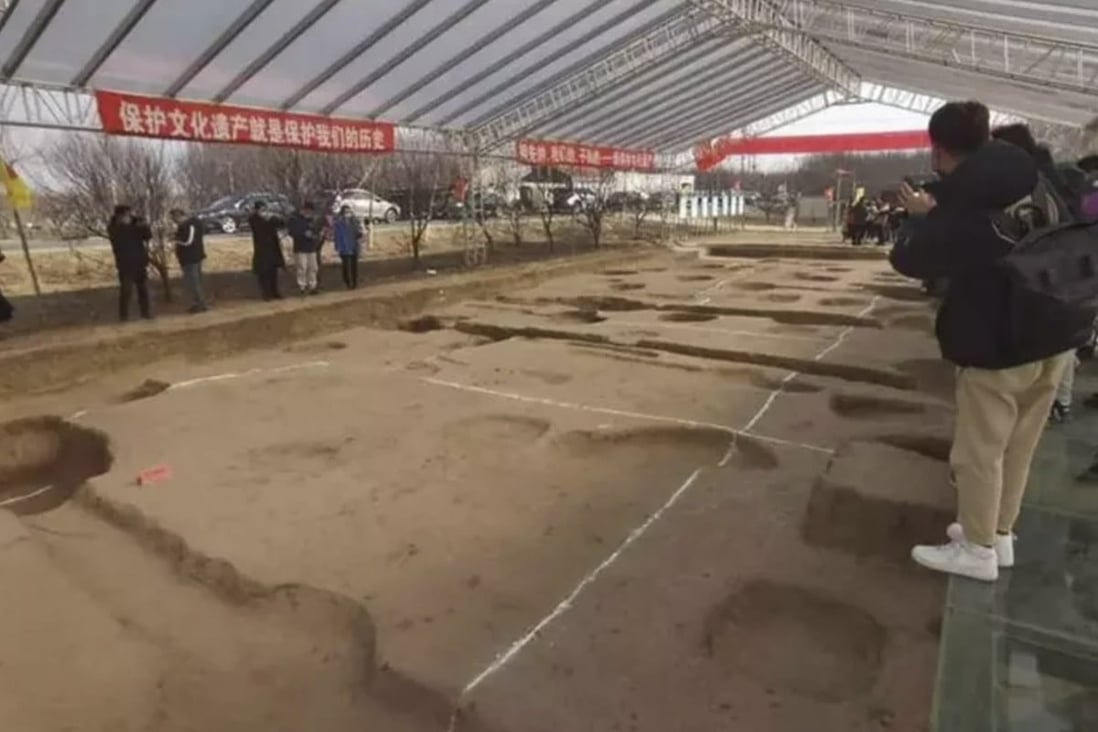Archaeologists have discovered a center for the best Chinese intellectuals from the Warring States period, which dates back over 2,000 years.
 |
| Picture from scmp |
The institute was once confined to the annals of history; experts assumed it existed, but nothing was known about Jixia, and there was no definitive confirmation that it existed.
That is, until archaeologists in Shandong Province, eastern China, claimed in late February that they had discovered the institute's ruins, a potential breakthrough after a five-year search.
The Jixia Academy was identified by scientists using historical records and carbon dating.
Jixia is a mysterious site, and some historians question whether it really qualifies as a "school."Academy conjures us images of a location where students are given structured training and possibly even degrees. "Imagining it as a think tank makes more sense to me," said Paul Goldin, a professor of Chinese thinking at the University of Pennsylvania in the United States.
Jixia was set up by the ruling government of Qi (323–221BC), one of the more powerful of the warring states whose borders were similar to those of modern-day Shandong. Goldin said it was plausible that the institute was launched during the reign of King Xuan of Qi (319-301 BC), and it probably operated for about 150 years.
Wicky Tse, an associate professor in the department of history at the Chinese University of Hong Kong said:
“With the sponsorship of the Qi court, the Jixia Academy could offer favorable conditions to the shi (intellectuals) who came to join and promote their scholarship. I would say the wealth and political and social stability contributed greatly to the intellectual development in the Qi kingdom.”
Goldin said the kings of Qi wanted to attract the top thinkers in China because “everyone knew the old political system was falling apart”.
“The whole system was going to collapse, and if you managed to find thinkers who had good ideas, then they would be someone worth recruiting to your court.”
The rulers of the old system, a divine-right monarchy set up by the Zhou dynasty (1050–221BC), were essentially figureheads by the time of the Warring States period, and rulers of the states held power over their borders. Life at that time was defined by constant warfare.
Zhou Boqun, an assistant professor in the School of Chinese at the University of Hong Kong, said:
“Warfare was an incentive for everything. A lot of the changes, both intellectual and political changes, were war-driven. Everyone wanted to end the perennial warfare; everyone wanted a stable society, that was the general wish shared by almost everybody.”
If a great thinker could find a suitable path out of war, it would be worth it for a ruler to facilitate their living and working in the kingdom.
Some of the major Chinese philosophers that arrived in Jixia were Shen Dao, a leader in Chinese legalism thought; Song Xing, a leader of Mohism, an intellectual and religious movement that was influential during the Warring States period; and Xun Kuang, a Confucian thinker whose work is immortalized in the book Xunzi.
However, in the history of Jixia Academy, no figure is more important than Mencius. His conversations with King Xuan were documented as part of a compilation called Mencius, one of the “Thirteen Classics” in Chinese history, although scholars believe it was more likely written by his disciples or other followers.
“If you read Mencius, during his conversations with the king of Qi, he actually criticizes the king a lot, and the king listens to him,” said Zhou.
This, however, does not make Jixia Academy a bastion of free speech, which is a key reason the experts compared it to a modern think tank rather than an academy.
They said the king tolerated a certain level of dissent, but it was unlikely up for public debate and the ideas were meant for the ears of him and his advisers.